If I had a nickel for each time I was asked, “What is IBS C and D,” I might be a billionaire.
What is IBS C and D 101:
- IBS – C = Irritable Bowel Syndrome – Constipation
- IBS – D = Irritable Bowel Syndrome – Diarrhea
What is IBS C and D
Click HERE to save this post for later.
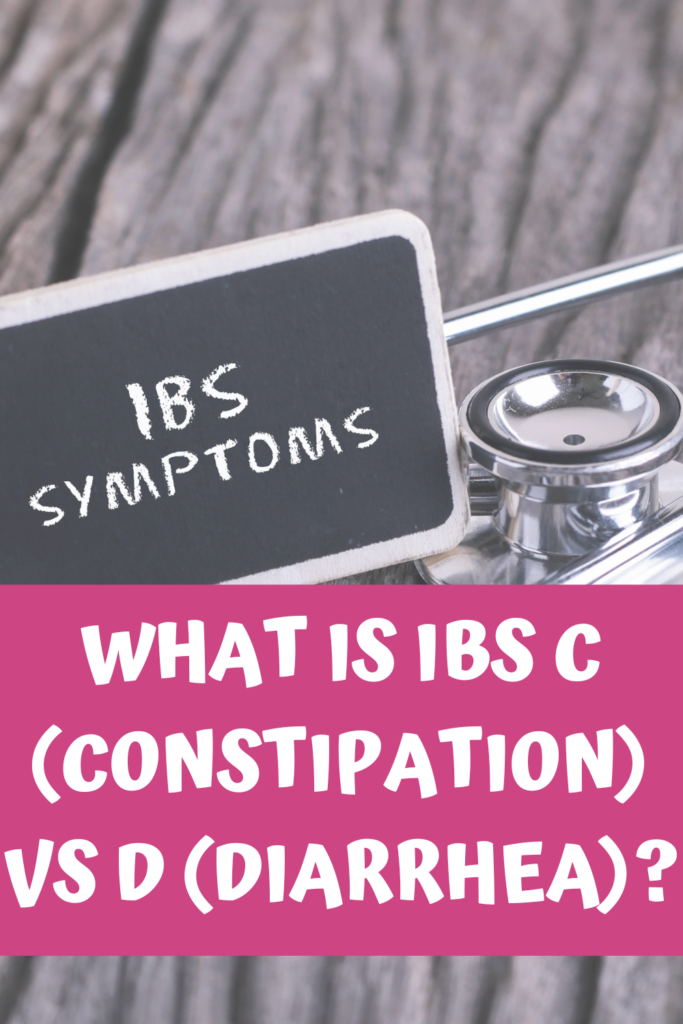
(Some of the information below is taken from A Gutsy Girl’s Bible: a 21-day approach to healing the gut)
IBS – C – Constipation Symptoms
Symptoms common with Irritable Bowel Syndrome – Constipation are:
- bloating and/or gas
- inability to have bowel movements
- hard, lumpy stools at least 25% of the time (Bristol Stool Chart number 1-2)
- difficulty or straining at stools
- sense of wanting to go, but being unable to
IBS – D – Diarrhea Symptoms
Symptoms common with Irritable Bowel Syndrome – Diarrhea are:
- bloating and/or gas
- loose, watery stools (Bristol Stool Chart number 6-7)
- sudden urges
- frequent bowel movements
- mucus in stool
- cramping
You may have dominant diarrhea or constipation or a form that toggles between the two. The toggling IBS – C / IBS – D is actually very common.
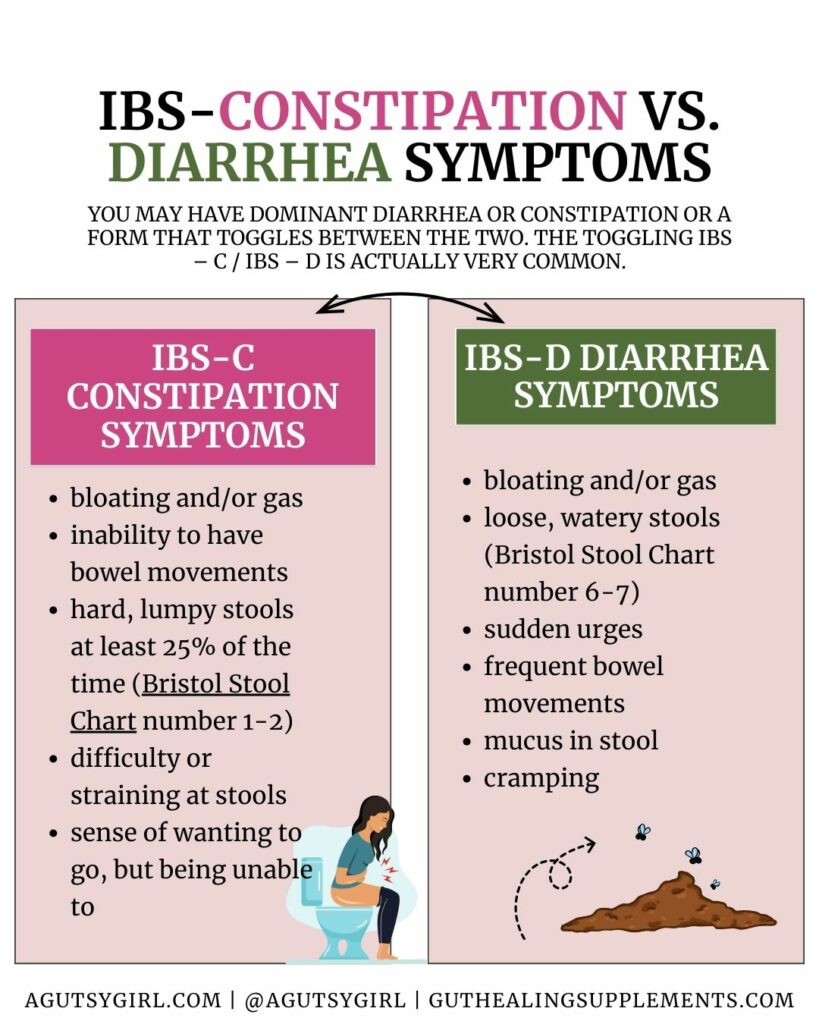
While I believe that fundamentally we heal them in the same way (diet and lifestyle), I also know that there are several things to do / not do when in “flare up” mode for either.
Here are some things to keep in mind.
IBS – C Solutions
- Ensure you are eating enough gelatinous meats and fats, aka high-protein fats (high-protein dairy can aggravate constipation).
- Juicing recommended (use high-magnesium fruit and vegetables, such as oranges, celery, apples, carrots, cabbage, beetroot and greens).
- Magnesium in general, as a supplement, might also greatly help.
- More gelatinous meats (i.e. liver), less muscle meats (i.e. boneless, skinless chicken breast).
- Try the Intestinal Movement Formula. For Children, consider Ready Set Go!
IBS – D Solutions
- No nuts until diarrhea has cleared.
- Be very cautious with anything raw; nuts, fruits, vegetables, etc.
- Homemade kefir and yoghurt can help bulken the stool, aka high-protein dairy (high-fat dairy can aggravate diarrhea). Note: This is not kefir and yoghurt from the grocery store typically. You must make your own.
- Avoid Epsom salt baths.
- Limit Vitamin C powder.
- Avoid extra Magnesium.
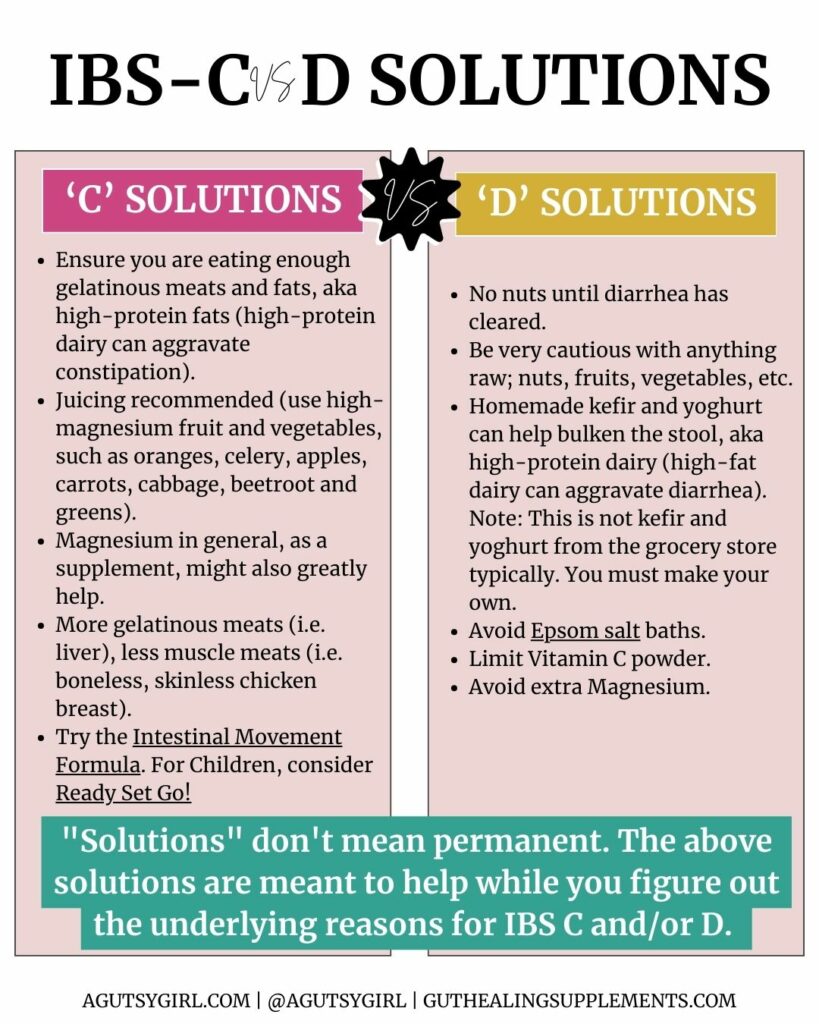
“Solutions” don’t mean permanent. The above solutions are meant to help while you figure out the underlying reasons for IBS C and/or D.
Again, I believe we fundamentally heal in the same way: diet and lifestyle. If you are following everything carefully and eating top-quality, unprocessed foods, most of your diarrhea and constipation will naturally improve. The above tips are for those who may be wondering “what else” might help.
So what causes IBS C and/or D?
According to Healthline, “The physical processes involved in IBS can also vary, but may consist of:
- slowed or spastic movements of the colon, causing painful cramping
- abnormal serotonin levels in the colon, affecting motility and bowel movements
- mild celiac disease that damages the intestines, causing IBS symptoms”
The reason I have chosen to not focus much on the causes is because, in addition to the three above, there are many more outside of those and even within each are further causes (i.e. But why is the colon slowed or spastic?)
Therefore, I don’t want you to focus on the cause. The longer you guess, the longer it will take to get better. Go to a doctor; begin that journey. If you aren’t sure how, start with the Beginner’s Guide to Digestive Health Testing.
And, of course, start your gut healing journal!
p.s. All of the above can apply to IBD as well (Inflammatory Bowel Disease). You can have IBD C or D (or both). To learn the difference between IBS and IBD see IBS vs IBD What’s the Difference.
If you liked this post, you might also enjoy:
Questions? Ask away!
Xox,
SKH
🤰 bloating be gone! weight loss through optimal gut health for women
💃ʜᴇᴀʟ ʏᴏᴜʀ ɢᴜᴛ. ʜᴇᴀʟ ʏᴏᴜʀ ʟɪfe.
🫶🏻 founder gutbyome.com

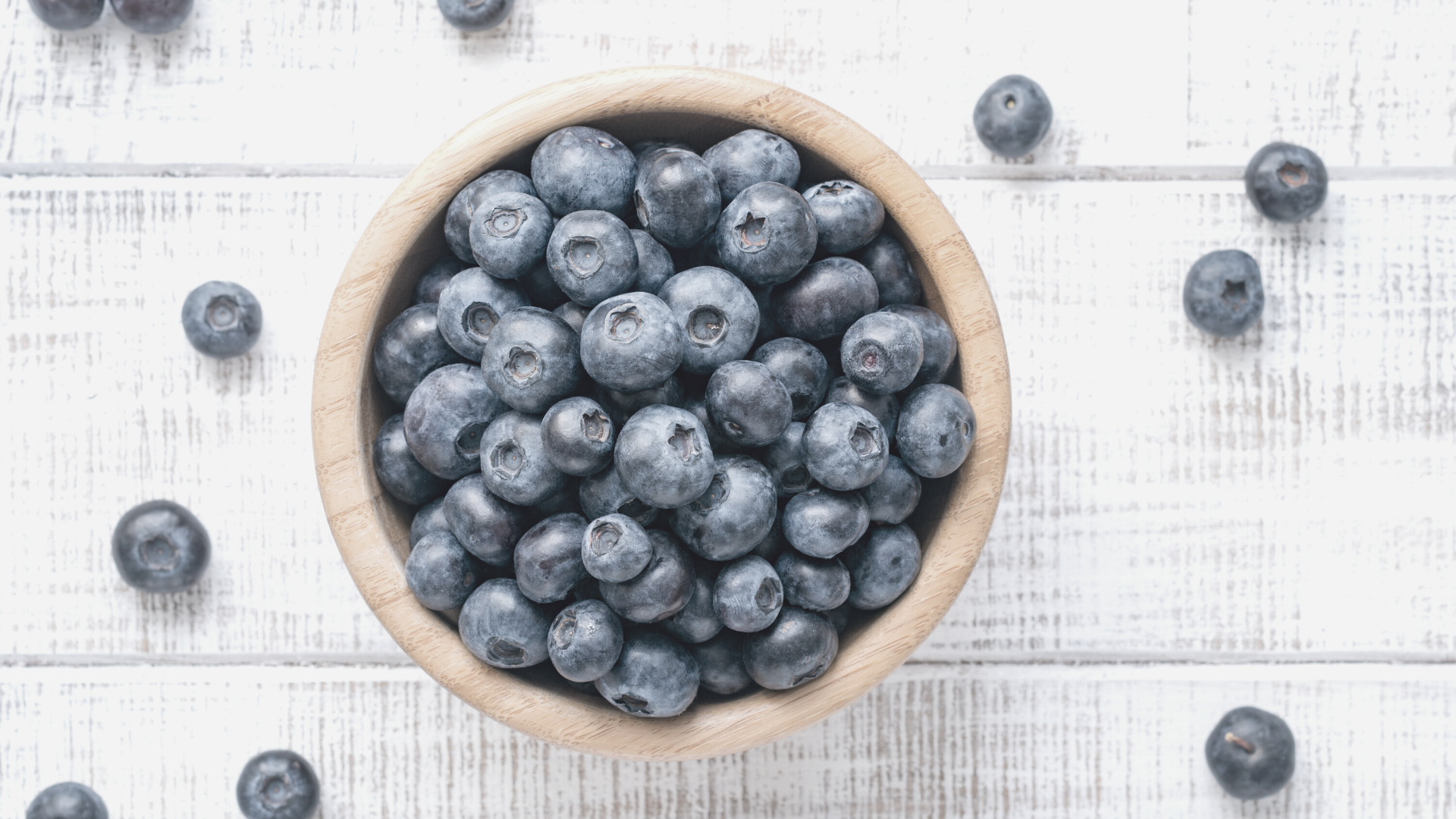

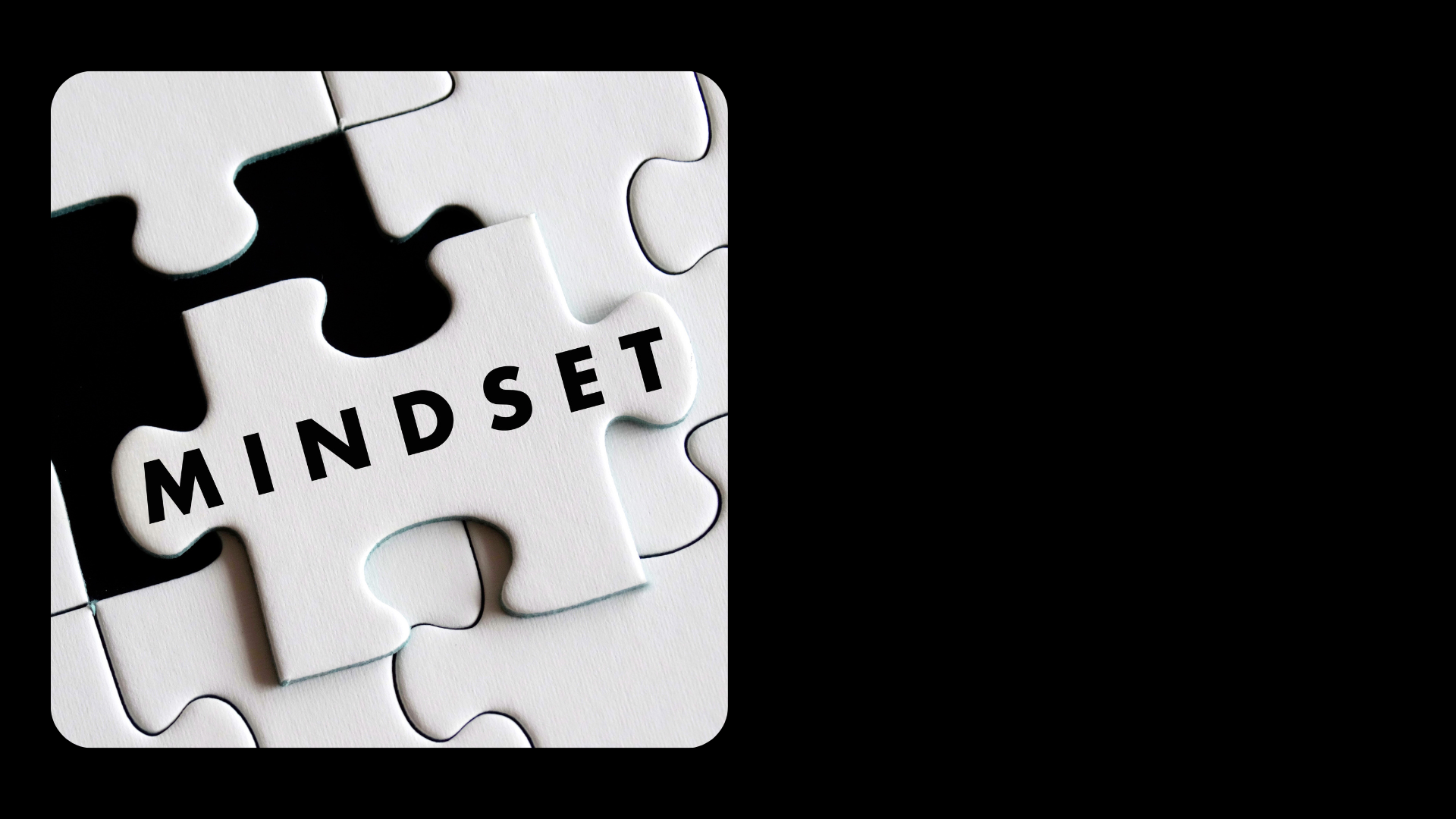



What if you have neither constipation or diarrhea but still have bloating?
What happens if I am vegan and I suffer from IBS-C? I don’t really want to eat meat.. It is so chronic since last year, I feel like I am never going to get relief.
Hi! I was where you are, but in the end, all I wanted to do was feel better. I did what I needed to heal and now I am about 80% Vegetarian (And thriving)!